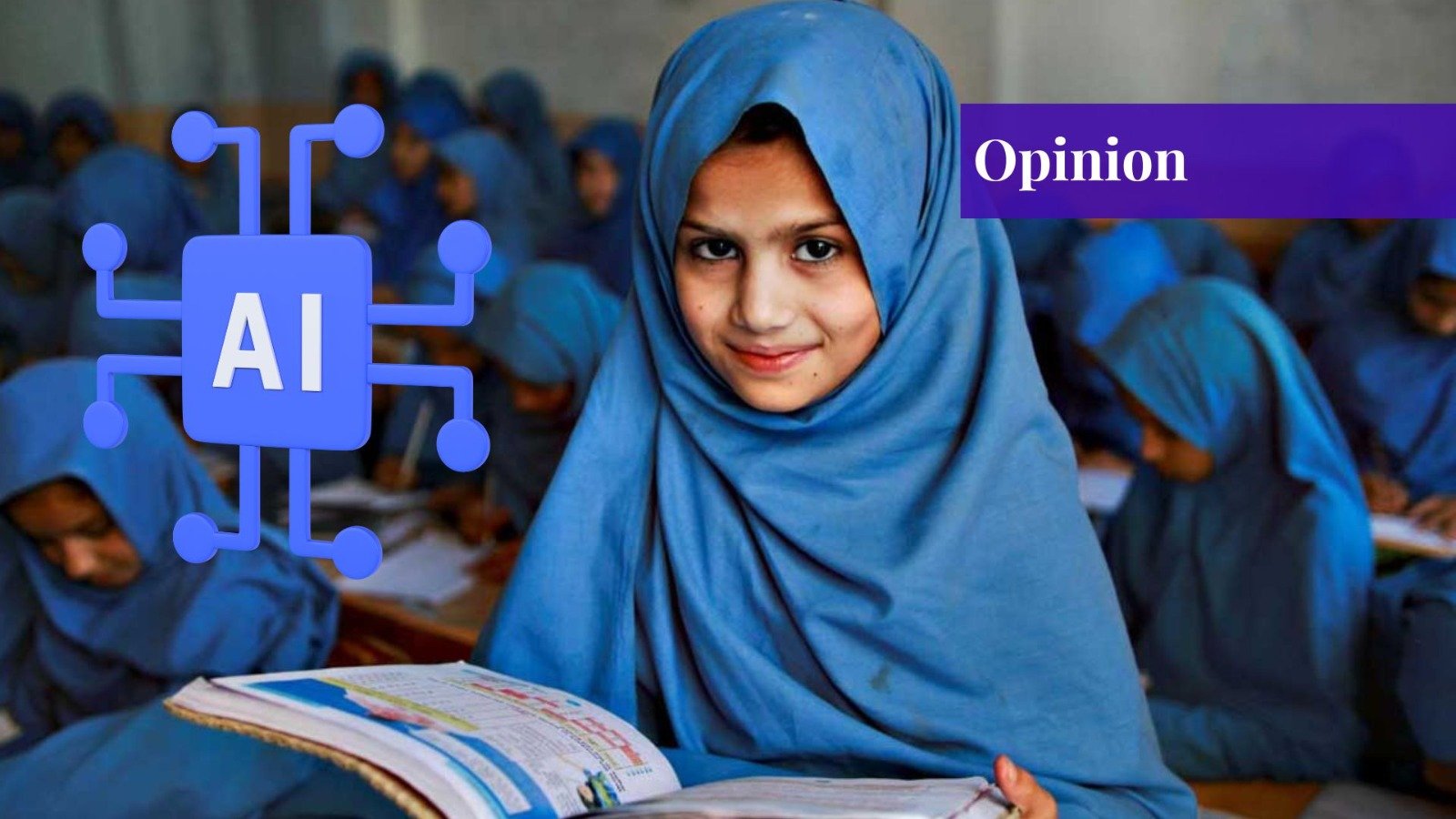There’s a kid in a classroom in Lahore right now, maybe in Islamabad, staring at a history book. He’s cramming dates about some long-dead emperor, facts he’ll forget the second the exam is over. It’s the same stuff his father learned, probably his grandfather, too. A syllabus that’s gathering dust. But what if, after school, that same child opened their laptop and started learning not just about the past, but about how to build the future? What if they started learning the basics of agentic AI?
What if that student, instead of just consuming information, started creating it? This is not a scene from a distant future. This is happening right now, all over the world. And it represents the single greatest opportunity for our nation’s youth and its economy. The traditional path of study, degree, and then job is being radically short-circuited by a new reality: the future belongs to those who build skills alongside their schooling.
For too long, we have told our children that their economic journey begins after graduation. This is a dangerous myth. In a world of fierce global competition, our youngsters need to become creators and earners long before they hold a degree. The goal is simple and revolutionary: to equip our children, starting from as early as Grade 6, with high-demand freelance skills so that by the time they are in Grade 10, they are not just students, but experts-in-training, contributing to the national exchequer.
Why Start From Grade 6?
The whole “AI agent” thing probably sounds like something for brainiacs at a top university. It’s not. It’s about learning the simple logic that makes the digital world tick. Honestly, it’s like learning a new language – the younger you start, the easier it sticks. Think of it like learning a language. It’s far easier when you are young.
Building a basic AI agent is just teaching a machine simple rules. A child can start with free, visual tools like Scratch to understand “if-then” logic. “IF a user asks for the weather, THEN show them the weather in their city.” This is the foundational brick of all programming.
From that point, they can jump to something like Google’s Teachable Machine and train a tiny AI without one line of code. Teach it to know their own face from their brother’s. Teach it to tell the difference between a picture of a goat and a cat. They’re learning the guts of machine learning, and to them, it just feels like a game. It’s fun.
Fast forward a couple of years to Grade 9 or 10. That logic is now baked into their brain. So, picking up a bit of Python to build a real chabot doesn’t feel like climbing a mountain. It’s just the next step on the path. You’ve taken the fear out of technology and turned it into a toy. A powerful one.
Your Free Launchpad
The most powerful part of this revolution is its accessibility. This is not a privilege reserved for the elite kids. The biggest hurdle for most kids in Pakistan, especially the working class, has always been the price tag on good training. Well, that wall is coming down.
The Government of Pakistan itself has provided the perfect Launchpad with its Prime Minister’s Youth Skill Development Program (PMYSDP), DigiSkills.pk, Bano Qabil Program, and other programs. This is a national treasure that every student and parent should know about. It offers completely free, high-quality online courses in 15 in-demand fields, including:
- Freelancing: The first thing you should take. Teaches you how to earn online.
- Graphic Design: Making logos and all that graphic work.
- SEO: The art of ranking your website to the top of Google.
- Digital Marketing: Marketing things online.
- WordPress: Building websites from scratch.
A student can enroll in as many courses as they want. Imagine a child in Grade 6 taking “Freelancing” and “Graphic Design.” In a few months, they’d have a skill that’s worth real money. It’s all there. The only thing you have to put in is the time.
Other resources are also emerging, providing free access to knowledge that was once locked behind expensive paywalls. The only investment required is time and the will to learn.
From Pocket Money to National Economic Engine
The ripple effect here is massive. First, for the individual and the family. Some kid from a family that’s struggling, earning even $50 for a small design job. That’s not just pocket money. That’s a game-changer. It’s food on the table. It builds a kind of confidence that you just can’t get from a textbook. It makes them an earner, not a burden.
Second, for the nation. Pakistan is already a freelancing powerhouse, ranking as the fourth-fastest-growing freelance market in the world. Freelancers are injecting over $1 billion into our economy annually. Now, imagine if we systematically multiplied that workforce. Imagine if hundreds of thousands of our brightest youngsters entered the global market not at age 22, but at age 16.
They would not be competing for low-wage data entry jobs. Having started early, they would be offering sophisticated skills in programming, AI, design, and marketing. They would be commanding higher rates, bringing more precious foreign exchange into Pakistan, and single-handedly strengthening our economy from the grassroots level.
This is a direct path to economic mobility for the “labour poor class” and the middle class alike. It bypasses the need for “sifarsih” or connections. All over the world in the digital marketplace, the only thing that matters is the quality of your skills and your portfolio.
If you want to submit your articles and/or research papers, please visit the Submissions page.
To stay updated with the latest jobs, CSS news, internships, scholarships, and current affairs articles, join our Community Forum!
The views and opinions expressed in this article/paper are the author’s own and do not necessarily reflect the editorial position of Paradigm Shift.
Arslan Mirza is pursuing rhetoric at Harvard University to master the art of persuasion. As an independent researcher with over 10 years of experience, he has published more than 1,200 articles and over one million words in numerous US-based publications. You can reach him at [email protected].



